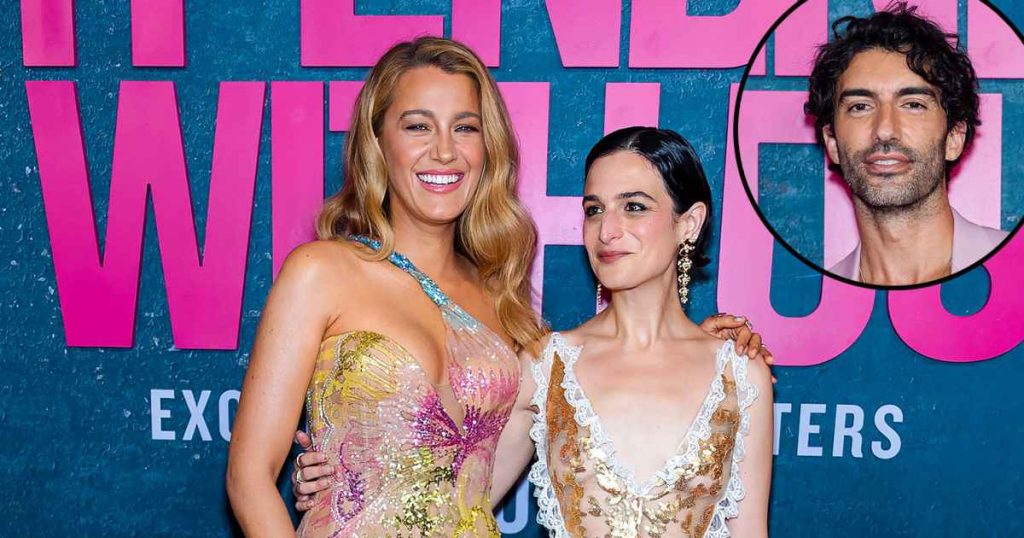The entertainment industry has been rocked by a lawsuit filed by actress Blake Lively against her former co-star and director, Justin Baldoni, stemming from their work on the film adaptation of Colleen Hoover’s novel, It Ends With Us. Lively’s lawsuit alleges a pattern of sexual harassment, a hostile work environment, and a calculated smear campaign orchestrated by Baldoni to damage her reputation. This legal battle has drawn significant attention, with several individuals, including Lively’s castmate Jenny Slate, publicly voicing their support for the actress.
The heart of Lively’s accusations centers around Baldoni’s alleged inappropriate behavior on set. She claims he made unwanted advances, improvised kissing scenes without her consent, discussed his sex life in her presence, and body-shamed her. Lively also alleges that Baldoni and producer Jamey Heath entered her trailer while she was undressed and breastfeeding, a violation of her privacy and a further contribution to the hostile environment she describes. The lawsuit paints a picture of a director who disregarded professional boundaries and created an uncomfortable and unsafe atmosphere for Lively.
Beyond the on-set allegations, Lively’s lawsuit accuses Baldoni of engaging in a deliberate campaign to tarnish her reputation. This alleged campaign involved "astroturfing," a practice of manipulating public opinion by creating the illusion of grassroots support. According to the lawsuit, Baldoni, along with a crisis management expert and a publicist, planned to disseminate fabricated comments and opinions online to damage Lively’s image. This alleged tactic, if proven, represents a calculated effort to retaliate against Lively for resisting his alleged inappropriate behavior and speaking out against his conduct.
The lawsuit also contends that Lively rejected Baldoni’s suggestions to add gratuitous sex and nude scenes to the film, further highlighting the power dynamics at play and her attempts to maintain professional boundaries. Lively’s refusal to comply with these requests, according to the lawsuit, may have been a catalyst for the alleged retaliatory actions undertaken by Baldoni and his team. This underscores the pressures actors, particularly women, can face in the industry and the potential repercussions of challenging those in positions of power.
Baldoni’s attorney has vehemently denied the allegations, calling them "completely false, outrageous and intentionally salacious." He claims that Lively filed the lawsuit as a preemptive measure to address her supposedly negative reputation and alleges that she threatened to boycott set and promotional activities unless her demands were met. This contrasting narrative presents a starkly different picture of the events surrounding the film’s production and sets the stage for a potentially protracted legal battle.
Amidst these conflicting accounts, several prominent figures have rallied behind Lively. Jenny Slate, who played Lively’s character’s sister-in-law in the film, issued a statement expressing her unwavering support for Lively, commending her bravery and denouncing the alleged attacks on her reputation. Similarly, Brandon Sklenar, who portrayed Lively’s love interest in the film, and Colleen Hoover, the author of the source material, have both publicly expressed their support for Lively, urging people to read the New York Times article detailing the lawsuit. This public support from colleagues and the original author adds weight to Lively’s claims and highlights the seriousness of the allegations. The outcome of this lawsuit remains uncertain, but it has undoubtedly sparked a crucial conversation about power dynamics, workplace harassment, and the importance of supporting those who speak out against misconduct in the entertainment industry.

